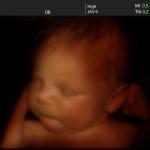In a previous post, I wrote that the Evangelical mind was being split apart. This was in virtue of living amidst two competing camps of philosophical method. Here I address a different yet related issue. It is one causing not so much a bifurcation of the Christian mind, but a devastating fragmentation of it. The source of this fragmentation is the technology available to us, combined with our undisciplined use of it.
The framing question is this: is our technology, and our use of it, overwhelming our mental capacities in such a way that we are suffering emotionally and spiritually? I think this may be the case. If so, we must reconsider this dynamic relationship between human person and human product.
A Holisitic View of The Human Person
Mind and body have only been strongly delineated since Rene Descartes gave birth to modern philosophy in the 17th century. With Descartes, the infamous “mind-body” problem emerges on the philosophical scene (well, sort of). Ancient views of the human person could speak both of body and mind, or soul, but not in such compartmentalized terms (with the exception of the Gnostics perhaps, who misunderstood and misapplied Plato). Paul’s sarx is far more than just the physical body, it has a mental and spiritual component as well.
Thus, the biblical view of the human person speaks about the spirit or soul of man along with the body. The two are united in an organic synthesis. The God of the Bible made and united body and soul as a means for us to bear His divine image. Just as the physical macrocosmos expresses the majesty of the Creator (Psalm 19:1-6), so to the physical microcosmos that is every human person (Psalm 8:4-8).
Hence the vital importance of Jesus’ incarnation and His bodily resurrection, as well as the bodily resurrection of all souls at the end of time–some to judgment, some to eternal glory. God’s paradigm creation, the human person, was meant to be eternally physical as well as spiritual. I do not claim that God’s power was limited in such a way as to necessitate bodily existence. God could have made world consisting only of immaterial minds. But God’s freedom in His choice of creation, which is intimately interwoven with His goodness, must be respected.
And so what we do with our bodies matters greatly to the vitality of our soul (or mind). This is a basic truth that every food scientist and dietician knows quite well. Conversely, what we put into our mind affects the health and wellbeing of our bodies. Bad ideas can corrupt our bodies just as immoral bodily acts corrupt our inner self. It is for this reason that Paul, on the one hand, can commend the church in Philippi to do the following:
Finally, brothers, whatever is true, whatever is honorable, whatever is just, whatever is pure, whatever is lovely, whatever is commendable, if there is any excellence, if there is anything worthy of praise, think about these things.
Phil 4:8
and then turn around and say this on the other:
What you have learned and received and heard and seen in me–practice these things, and the God of peace will be with you.
Phil 4:9
When piety of thought and physical practice fit together, there is harmony of action, and, for the Christian, God is with us in that action. This is what it means to be moral.
Any athlete who habitually practices thinking about his movements on the playing field knows that this envisioning of what one is about to do physically increases the likelihood of actually doing it. Similarly, envisioning wicked things or entertaining evil thoughts will increase the likelihood of actually doing them. This is how the human person is constructed. This is not to say we will necessarily do all that we think (and thank God for that!). It is however to say that to habitually entertain or imagine something in the mind will facilitate acting it out in the body. Something that is rarely or hardly ever contemplated will rarely if ever be actualized.
We can only begin to imagine how powerful and how good this mind-body dynamic will be when fully redeemed in Christ. Is it too much to think we might be able to create wonderful realities simply by thinking about them, apart from the manipulation of other materials? Only an eternal time in heaven will tell. Of course the corollary to this is what an embodied soul that thinks only evil thoughts will be like given an eternal timescale. I have written about this elsewhere, but it is a consideration that may make the Christian doctrine of hell more comprehensible, especially if we were to take our inner most thoughts, feelings and desires both seriously and at face value.
It is for these reasons, therefore, that we must think hard about technology and how its use can affect our inner lives. As our parents (or grandparents) rightly taught us: “garbage in, garbage out.” Although it is not only garbage that we must be aware of. The devil is more subtle than that. Not all information we take in is intrinsically bad.
Four Ways Information Overload Can Affect Us
Information can often be good. At least we tend to see the status of “being informed” as a generally good thing. However, the mind (and body) cannot sustain receiving a constant flow of information without some negative effects. We were not designed to be information processing machines only, although in one sense we are like that. And so we must learn to manage and regulate the amount of information we take in. Otherwise we might find ourselves overwhelmed, perhaps to the point of being incapacitated or, as I said, fragmented. It seems we really can overdose on information. This is something that theologian Robin Phillips has appropriately called “Information Fatigue.”
I can think of four ways that too much information might negatively affect us (although certainly there are more). If we are not careful, this information overflow can have serious ramifications for our well being. And so we must be sensitive to taking in too much of the following:
- Too much information about human evil and suffering
- Too much contradictory information about reality or “ultimate things”
- Too much information about trivial or foolish things (the converse of 1 & 2)
- Too much information about things we cannot affect or make possible
Each of these types of information, if not managed well, might facilitate serious mental and emotional illness. Each area of information can affect us negatively in its own way.
Number 1: Too Much Information about Human Evil and Suffering
Daily we are met with information about the following: wars overseas, mass shootings, domestic violence, racial tension, potential financial collapse, rising costs, growing inflation, global pandemics and devastation due to earthquake, tornadoes, hurricanes, heat waves and forest fires. The first set of issues relates to what moral philosophers and theologians would call “human” or “moral” evil. The latter are usually categorized as “natural” evil or “suffering.” The first have to do with what cognizant, personal agents do to each other. The latter have to do with what impersonal nature can do to us. There is a third type of evil, demonic evil, which I will not address here (in spite of the fact that it underlies much of the other two kinds).
In addition to seeing all the general evil and suffering of the world, in both religious and non-religious contexts, Christians in particular are constantly reminded of various and sundry moral failures of “high-ranking” or prominent spokesmen for the Church. The Church, which is supposed to be the safe-haven from the world, often appears no different than it or even much worse. Thus we are overwhelmed daily with this kind of information. Not only by the numerous atrocities of mankind or the volatility of nature in general, but about evil and suffering within our own Christian context. This can be too much for the mind to process. Moreover, in light of point 4 below, we can feel helpless to do anything about this level or degree of evil.
Of course the problem is not that there is moral evil and natural suffering in the world. The Church has always provided answers to the “Problem of Evil” in rich and robust ways throughout its history. While that answer may not be adequate for some skeptics, the Christian message of hope and redemption in Christ, in spite of evil and suffering, is still the best solution to the problem the world has yet received.
The problem, therefore, is not evil and suffering per se. Rather it is the access we have to information about evil and suffering. The amount of evil in the world is likely, although this seems impossible to quantify, no more or less today (adjusted for population size of course) than in the past. In fact, we might assume there is far less suffering today than in the past. As C.S. Lewis was keen to point out: one of the only real differences between us and pre-modern men has been the invention of chloroform (i.e., painkillers). Yet our ancestors’ physical suffering drove them toward God, while our physical comfort drives us away.
But here is perhaps one other major difference between us and our fore-forefathers: our technology exposes us to a much greater volume and variety of grief. But this is not just grief in general–which we always knew existed– but grief in particular. We become aware of too many individual stories of tragedy. We know of too many personal examples of real people in real places who suffer real sufferings or commit real evils. For every school shooting in America, there is the story of the numerous victims as well as the story of the shooter himself. Prior generations would only have known about the tragedies in their immediate, localized area of knowledge (e.g., in their villages, townships and maybe cities).
True, all this global information might motivate us to moral action. But so could seeing the same thing locally motivate us to act. In fact, it is possible that knowing too much information about evil and suffering at a distance might actually hinder us from acting locally. Perhaps we miss what is going on right in front of us, specifically because we are busy reading about or watching horrors from around the world. This dynamic would be inverse, the further back in time one goes and the simpler the technology of the day.
There is one more important point to make about this unparalleled access to information regarding human evil and suffering. That is this: reporting about human wickedness and natural disasters will always outweigh reporting about human goodness and the regular, and very beneficial, operations of natural processes. Rarely will the media report about someone being terribly kind or extraordinarily gracious; or that two individuals or groups treated each other with unusual generosity. Even more rarely will you hear anyone report, at least in spectacular fashion, about how the water cycle yet again functioned in accordance with natural laws today; or how the sun’s rays once more reliably contributed to photosynthesis, growing the world’s crops; or how there was not an earthquake in this part of the world or a tornado in that part of the country yesterday or last week.
Number 2: Too Much Contradictory Information About Reality
One of the reasons the medieval Roman Catholic church retained Latin as the language of the Church was so that thorny doctrinal issues could be debated “behind the scenes,” sparing the common man from the intense battle of ideas and terms often required to hash out critical theological judgements. The common man and woman could have their simple religion without being exposed to the long, arduous debates over which doctrines should actually be taught or preached. They could simply benefit from the results of those debates.
Of course the Reformers position was that in spite of the chaos it might cause for a vernacular Bible to be in the hand of every ploughboy and shoemaker, it was nevertheless worth the risk. For the common man to have the Word of God available to him for his daily bread was too great a reward, one that offset the price paid of large-scale theological turmoil. Nevertheless, the Reformation did open the pandora’s box of public theological debate, debates that eventually lead to open war. That open war eventually lead to the Enlightenment’s understandable, albeit unjustified, rejection of revelation and the teaching authority of the Church.
Today, however, we have a very different problem than just vying theological interpretations among denominations or ecumenical traditions. With the rise of the modern research university in the 19th century, the fragmentation of academic disciplines, the abandonment of public Christian education in favor of secular humanism and the dawn of the internet and social media, it is not only debates about Christian doctrines that are public and seemingly endless. It is endless debates about reality itself that now overwhelm us. Having no public authority or consensus view, or even consensus method about how to grasp truth, the contemporary mind is literally fragmented in ways never before in human history.
Even if algorithms are set up to keep us in a particular kind of ideological “echo chamber,” a problem in itself, the inevitable wave of seeing or hearing point and counterpoint and counter-counter point to every thing we believe in, from the nature of certain human products, like vaccines, to human nature itself can be truly distressing and depressing. Mental health “experts,” whoever they may be (another problem), have only begun to scratch the surface of this new epistemic situation, one that could only be called chaotic if not outright nihilistic. Too many worldview options may very well just end in the void of never landing anywhere. This post-modern malaise, once contained in the confines of the brick and mortar academy, now spills out into the virtual streets via the internet.
For Christians, this raises numerous question of how to approach information in our continuous search for deeper levels of truth, given the bounds of the biblical revelation. Which studies or news sources do we access for reliable information? Which studies do we go on to cite as either accurately supporting, or genuinely challenging, our prior theological commitments? Which studies or news stories do we allow to shape our worldview? I could go on. Robin Phillips has again done an excellent job addressing this epistemic crisis we now face. Nevertheless that this problem of too much competing information about reality is itself a daunting reality cannot be overstated.
Number 3: Too Much Trivial or Foolish Information
In contrast to number 1, this problem relates to our endless access to mindless, trivial and foolish information. This takes many forms: late-night talk shows, late-late night talk shows and even later night talk shows than those. Then there is the endless stream of sports; of movies (bad ones, usually about comic book or video game characters); of supposedly sophisticated British TV Series, of incoherent, egoistical “reality” TV shows (“The Masked Singer” “American Idol,” “The Housewives of Upper Siberia,” etc., etc.); of shows that get too particular about incredibly mundane things (baking shows dedicated solely to cupcakes); and so on and so forth.
This list could grow exponentially if we include Youtube channels, Tik Tok, etc. I hesitate to think about how many hours of how many lives have been wasted watching stupid animal videos or just stupid human videos. As I mentioned, this problem is the converse of the first two. It is not the overwhelming of the mind with the serious, the weighty and the significant. It is the spoiling of the mind with the inane– a distracting of the soul from all matters of real import. C.S. Lewis summed up this tactic of the devil in his classic The Screwtape Letters, where the pursuit of “nothing” of particular importance leads gradually to eternal separation from God:
Nothing is very strong: strong enough to steal away a man’s best years not in sweet sins but in a dreary flickering of the mind over it knows not what and knows not why, in the gratification of curiosities so feeble that the man is only half aware of them, in drumming of fingers and kicking of heels, in whistling tunes that he does not like, or in the long, dim labyrinth of reveries that have not even lust or ambition to give them a relish, but which, once chance association has started them, the creature is too weak and fuddled to shake off.
You will say that these are very small sins; and doubtless, like all young tempters, you are anxious to be able to report spectacular wickedness. But do remember, the only thing that matters is the extent to which you separate the man from the Enemy. It does not matter how small the sins are provided that their cumulative effect is to edge the man away from the Light and out into the Nothing. Murder is no better than cards if cards can do the trick. Indeed the safest road to Hell is the gradual one—the gentle slope, soft underfoot, without sudden turnings, without milestones, without signposts.
Seinfeld, one of the most acclaimed TV-series of the 1990’s, was self-referentially “a show about nothing.” Indeed our technology has allowed us to become a culture that is very much about the same–about nothing.
Number 4: Too Much Information About Things We Cannot Affect
Finally, all of these have to do in some way or another with a broader category of information. What I mean is that these other sources of information overflow all exist as a subset of a larger domain. That domain could be described as: information about things we cannot really affect or actualize given our circumstance or capacities. In other words, technology opens us up to a world of concrete, particular events and people that seem near to us but actually are at quite a distance.
The conflict in Ukraine might be one example of this. Many can, and have, donated money to the cause of Ukraine on account of technology itself. However, at the same time, there are simply too many aspects of the war that most of us cannot conceivably affect. As I pointed out above, this concern over things we cannot affect might even deter us from focusing on, or even being aware of, some local issue that we can affect (like things going on in our own home or on our block).
But there are also things constantly presented to us that are not just at a physical distance. Instead they exist at a kind of metaphysical distance. For example, I can take in enormous amounts of information about all kinds of potential life opportunities or pathways. This could be information related to exotic travel destination or to exciting career opportunities; or about people who have done extraordinary things (Stephan Curry perhaps) usually on account of their extraordinary abilities. I can consume information about things that I, in reality, could never actualize.
In taking in so much information of this sort, I can be lured into a kind of dream state. It is a state that could fool me into believing I can not only do one of these things but perhaps all of them. I can have a life full of adventurous travel given a career as a black-ops, special forces soldier who also has a lovely home with a faithful wife and five happy, healthy children and, of course, a dog. One can see the problem of having access to information about so many various lifestyle opportunities. It can tempt us to form a composite image of a life that is utterly unrealizable or unactualizable. Moreover, it would be impossible not just for me, but really for anyone.
This sets us up for a very hard fall. Especially if we actually try to pursue one or more of these goals. Moreover, for Christians, it can cause us to lose sight of where God has placed us, what God has given us (ability-wise) and what He has actually called us to be and do. Too much information of this last type can hinder our ability to discern God’s actual call on our life by overwhelming us with the wide array of possible life callings.
Conclusion: Technology Must Be Managed for The Sake of Our Soul and Our Community
In sum, the human person is a holistic creature: body and soul in a unified synthesis. What comes into our minds will have affects on the body. What we do with our bodies will either degrade or elevate our minds. Today’s technology is overwhelming us in various ways and our minds were not meant for this abundance of information.
If we do not discipline our use of technology, information of four types can begin to harm us. They can harm not only our individual soul, but the life and well-being of our immediate community. This community starts with our families, then our neighborhoods and our local institutions, to include the local church. I do not have a perfect solution to this very modern problem. Still I am fairly certain we need a better approach to information and we need it soon. If not we may find ourselves on a very gradual slope to a very infernal place.














